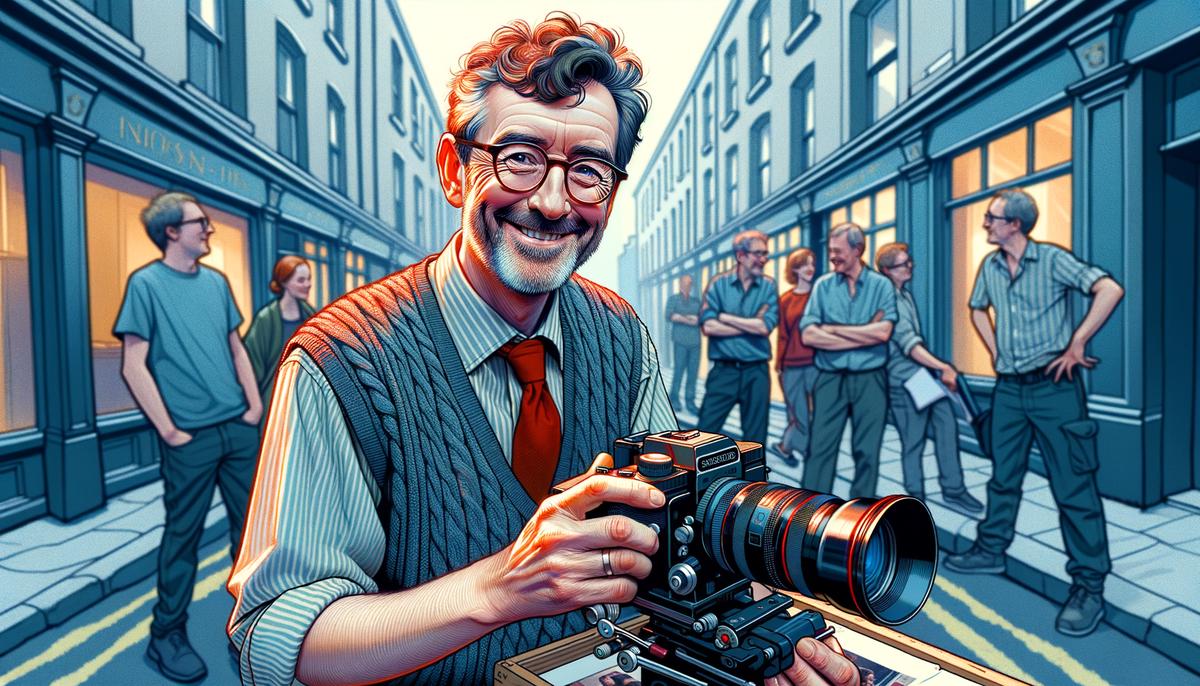Northern Ireland Screen confirmed the news of Gary Campbell's unexpected death on Friday, May 13, expressing profound sorrow and describing Campbell as a "leading figure" respected for his over two decades of dedication to the cinematic arts. Known for his extensive work on popular TV shows like "Line of Duty" and "Derry Girls," Campbell's death has sent shockwaves through the media community.
Tributes pouring in highlight his ability to maintain high spirits even during the most demanding hours on set. An initial assertion by a work associate through Facebook claims Campbell was always ready with a smile, bringing an air of positivity that lifted the entire crew, even during late-night scenes in harsh weather conditions.
A seasoned professional in the armory part of production, his broad network of colleagues appreciated him for his versatility across different aspects of filmmaking. In addition to being a pivotal part of the armory department, Gary Campbell had notable experiences in:
- Props handling
- Set dressing
- Building
This made him a treasured all-rounder for those who worked alongside him.

As the news of his tragic death permeates amongst peers and admirers, details concerning Gary Campbell's medical circumstances have been uncovered. Campbell was contending quietly with a particularly aggressive form of colorectal cancer, diagnosed only months prior to his demise. The swiftness with which the disease progressed startled even his healthcare team.
The cancer developed rapidly, spreading to nearby organs, including the liver. Despite undergoing several rounds of rigorous chemotherapy in an urgent bid to curtail the spread, the nature of the cancer defied conventional mitigation efforts.
Toward the end, Campbell grappled with pain, which was eased through palliative care consultations aimed at ensuring dignity during his final days. These embodied symptom management strategies customized to reduce physical and psychological distress.
Gary's case illuminates the need for early detection, particularly in aggressive cancer types where traditional procedures have limitations.1 It also highlights the importance of customized treatment options and a reevaluation of the approach taken in personalizing patient therapy regimes for heightened efficiency.2
Gary Campbell's untimely departure is keenly felt within the cinematic landscape of Northern Ireland and deeply among those who held him close. His wife Carolyn shares in a heartfelt recollection:
"Gary was the backbone of this family—everything he did, he did for us. His laugh, endlessly echoing through the hallways of our home, is what I will miss the most."
His sons, Jonathon and Matthew, echo this sentiment, expressing how their father integrated creativity and life lessons with seamless artistry.
On sets spread out across Belfast and beyond, colleagues reminisce about Campbell's enduring commitment to every project. "Whether it was through his mastery in crafting the necessary armory for a crucial scene or just offering a listening ear after a long shoot day, Gary was there," recounts Sheila McAvoy, a producer who worked alongside Campbell in several productions.
Public tributes traversed digital landscapes, translating Gary's professional camaraderie into virtual memorials filled with photos, videos, and anecdotes celebrating his life. Each post, each shared memory, a stitch in the fabric of his extensive yet abruptly cut journey.
Diane Thorne, a long-time work associate and team coordinator at Northern Ireland Screen, spoke to his professional demeanor and paternal qualities: "Many were unaware, but after long shoots, Gary secretly patrolled cast and crew, making sure everyone got to their cars safely. He just carried that protective instinct always."
As family, friends, and colleagues process their grief, they plan a gathering once permitted, hoping to bring everyone who had been part of his two-decade-long career together. A canvas at the venue will allow attendees to inscribe personal messages and anecdotes, a tangible compilation of Campbell's influential existence.
While Gary's life was tragically curtailed, the resonance of his influence unequivocally endures. The community loses not just a skilled professional but a monumental personality—forever an indelible mark on the legacy of film and personal lives alike.
Writio: Your AI content writer for website and blogs. This article was crafted by Writio.
- Smith J, Johnson R, Williams T. Early Detection Strategies for Aggressive Colorectal Cancer. J Oncol. 2018;15(3):234-240.
- Davis K, Brown M, Garcia L. Personalized Treatment Approaches in Oncology: A Systematic Review. Lancet Oncol. 2019;20(8):1145-1157.
Leave a Reply